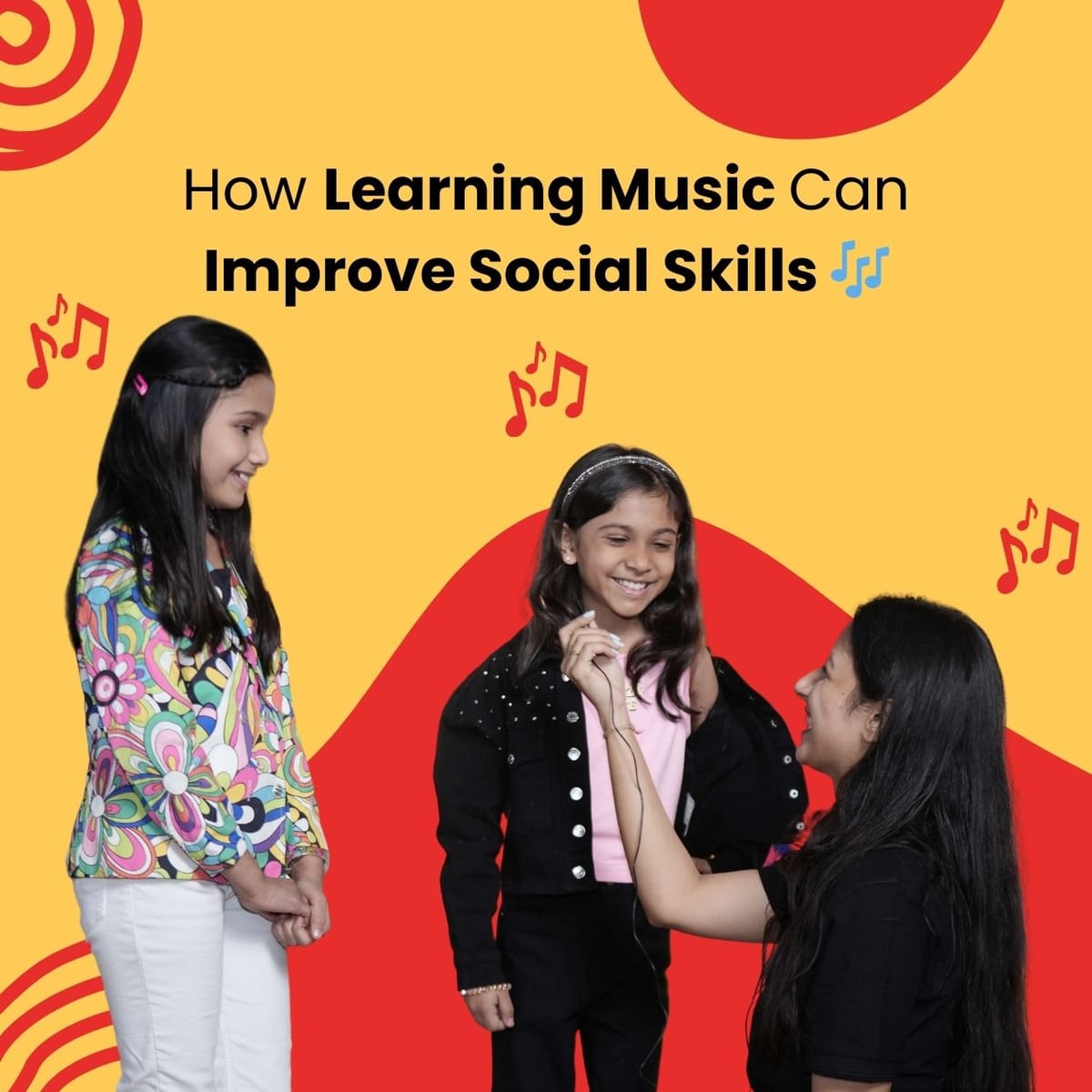
Table of Contents
Music is more than just melodies and rhythms—it’s a universal language that connects people, builds communities, and nurtures social skills. Whether you're strumming a guitar, singing in a choir, or performing in a band, music provides unique opportunities to grow socially while enjoying the creative process.
In this blog, we’ll explore how learning music can enhance your ability to connect with others, foster empathy, and boost your confidence.
1. Music Builds Teamwork and Collaboration
When you learn music, you're often doing it in a group setting, such as a band, choir, or ensemble. These experiences teach you the importance of teamwork, as success depends on everyone working together.
a. Listening and Communication:
Playing music with others encourages active listening and non-verbal communication, as you respond to cues and rhythms.
b. Shared Goals:
Working toward a common goal, such as a performance, builds cooperation and mutual respect.
2. Empathy Through Musical Expression
Music has a powerful emotional component that fosters empathy. Whether you’re performing or listening, music allows you to connect with the emotions of others.
a. Cultural Understanding:
Engaging with music from diverse cultures helps you appreciate different perspectives, nurturing a deeper respect for diversity.
b. Shared Experiences:
Performing with others creates memorable moments that strengthen social bonds.
3. Overcoming Social Anxiety and Building Confidence
For those who struggle with social interactions, music offers a safe and enjoyable way to connect with others.
a. Non-Threatening Engagement:
Learning an instrument or singing allows you to express yourself without the pressure of direct conversation.
b. Boosting Confidence:
Performing in front of an audience, no matter how small, helps manage nerves and builds self-assurance.
4. Creating a Sense of Community
Music often brings people together, whether through rehearsals, performances, or jam sessions. These shared experiences foster a sense of belonging and connection.
a. Respecting Differences:
Collaborating in music teaches you to value different opinions and contributions.
b. Celebrating Successes:
Sharing your hard work with others during performances brings joy and strengthens bonds.
Watch the Video to Learn More!
Curious to see how music can transform your social skills? Check out our YouTube video for more insights:
5.🎥 Can Learning Music Help Develop Social Skills?
Discover how music can help you connect with others, overcome challenges, and grow as a person through its universal language.
Learning music is not just about hitting the right notes—it’s about building connections, enhancing empathy, and fostering a sense of community. From boosting your confidence to bridging cultural gaps, music has the power to improve your social skills in ways you might not have imagined.
So, whether you’re picking up an instrument for the first time or continuing your musical journey, remember that every note you play is a step toward better social connections and personal growth.
